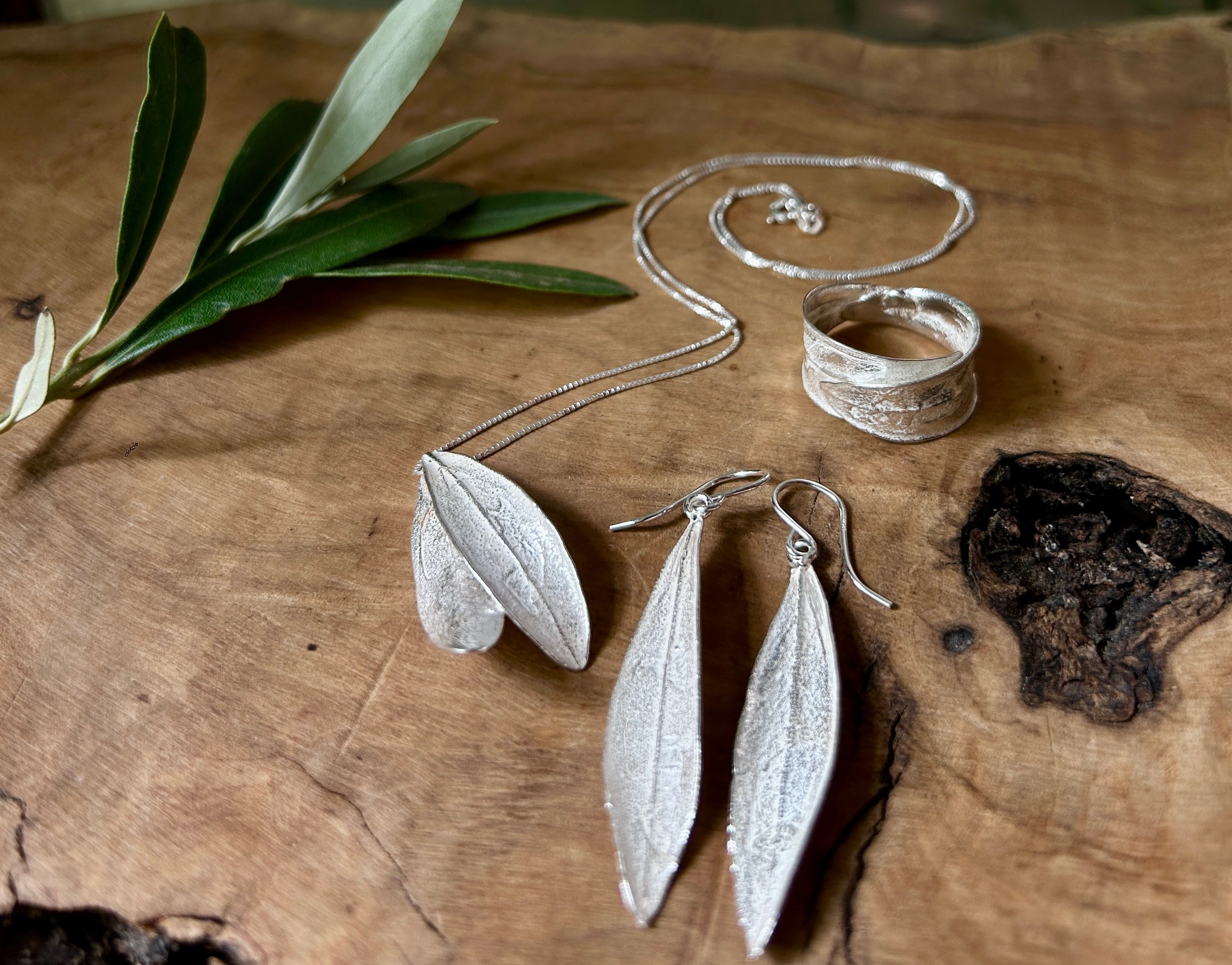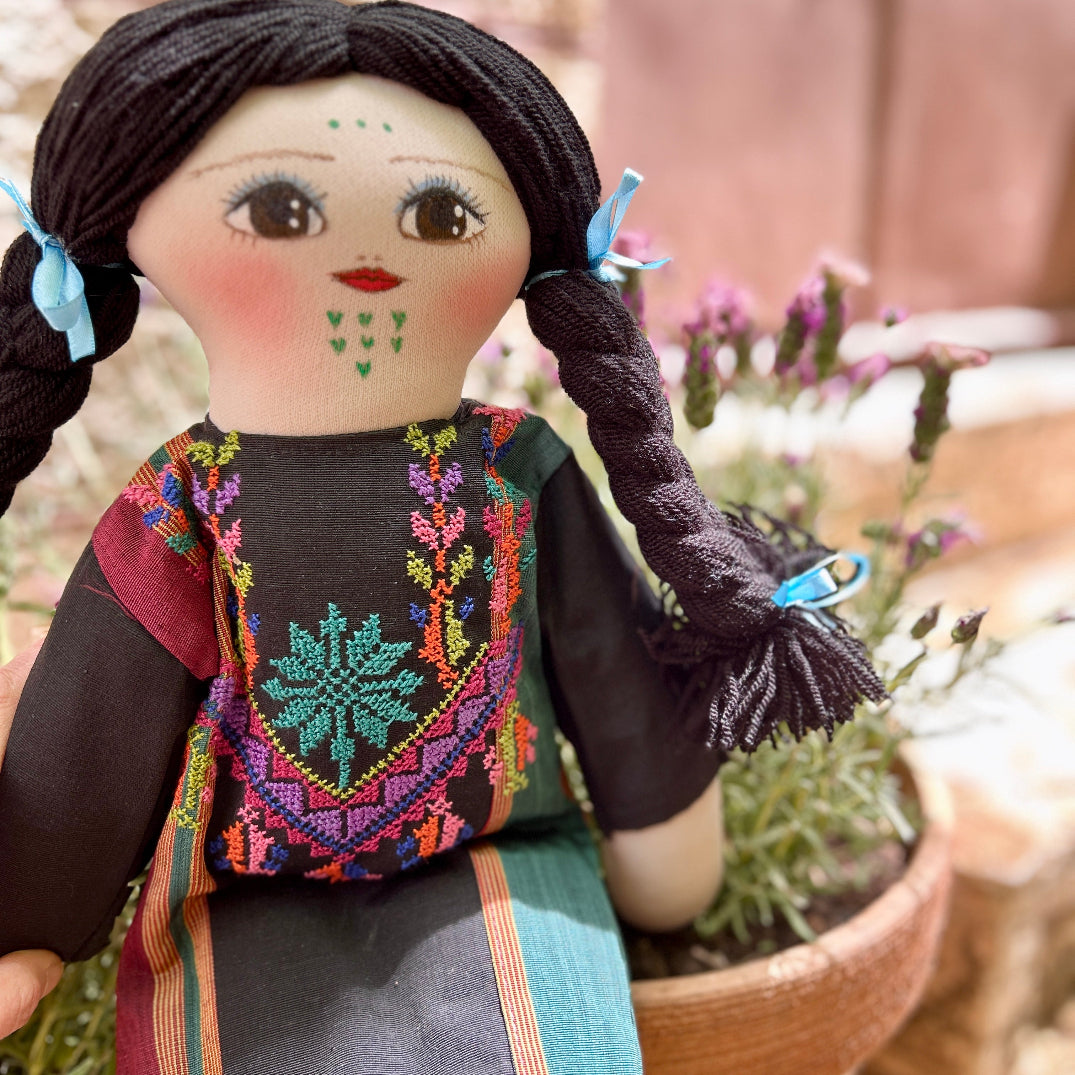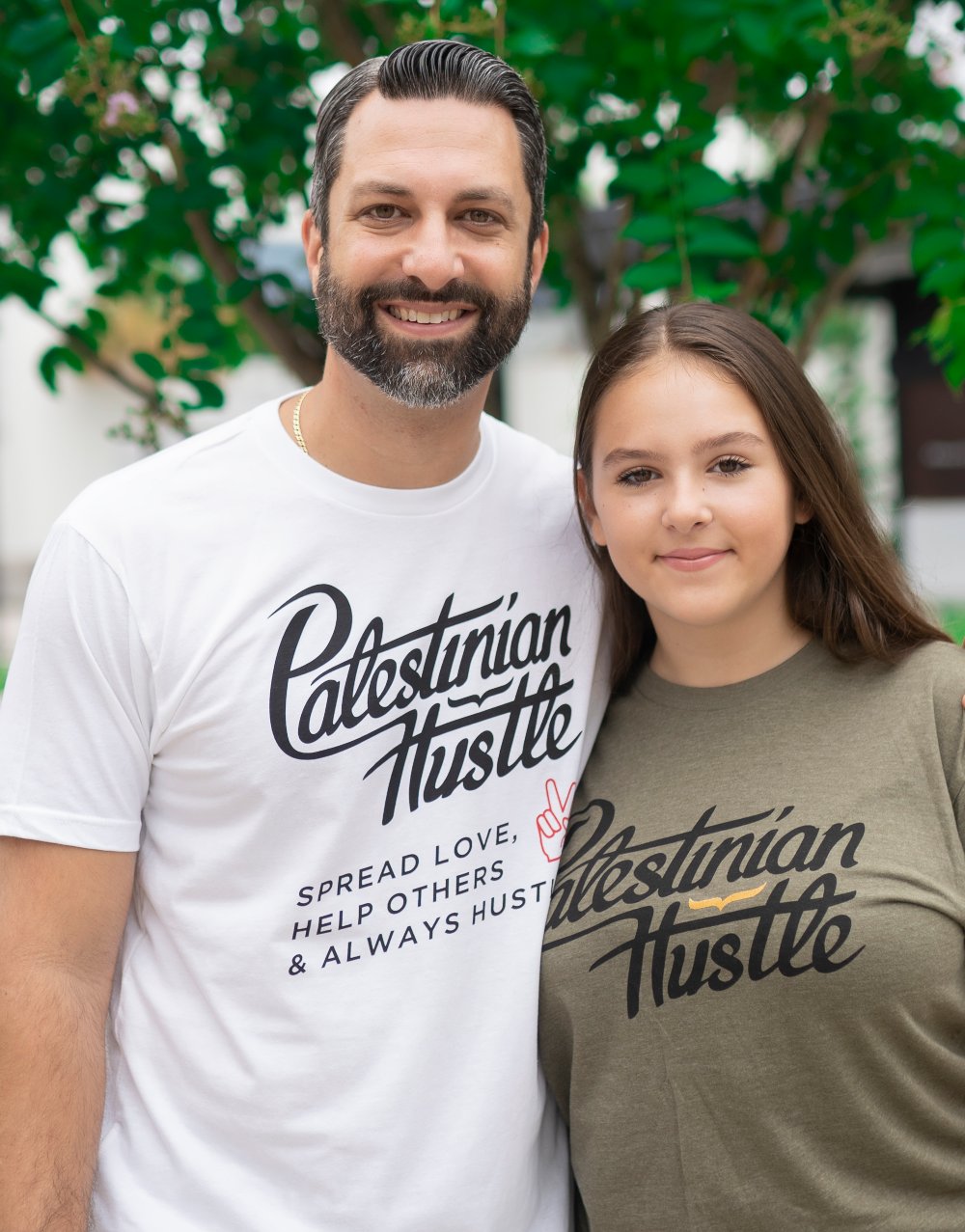
Meet Our Artisans: Zaytouna Jewelry – Silversmiths of Bethlehem
About You & Your Craft
What is your name and where are you from?
We are Nadira Al-Araj, Samer Kattan and Towfic Kattan. We are all from Bethlehem.

Pictured: Samer and Towfic Kattan
What kind of craft do you make?
We craft handmade silver jewelry.
How did you learn your craft?
Nadira began her journey in jewelry design and silversmithing through training at a local organization. When she started her production line, she partnered with Towfic Kattan, the last remaining traditional silversmith in Bethlehem. Towfic passed on his skills not only to Nadira, but also to his son, Samer, who added the art of silver engraving to the family tradition.
How many years have you been doing this work?
We've been working in silver smithing for 20 years.
Is this a family business? Do you work with others in your community?
Zaytouna Jewelry grew from a family jewelry shop. Like many small businesses, we work with trusted suppliers and resellers within our community.
What do you love most about making your craft?
Our collection is inspired by the olive tree—a powerful symbol of strength, peace, and deep roots in the Palestinian land.
What does your craft mean to you personally?
Creating unique pieces allows us to share the blessed olive leaf with our customers, carrying its symbolism and story to people around the world.
Tell us about where you craft.
Every silver leaf begins as a real olive leaf, handpicked from Bethlehem’s groves. Through a delicate casting process, the natural leaf is transformed into silver. We work in Bethlehem, the biblical birthplace of Jesus and a historic center for visitors and pilgrims. The olive leaves from this land make each piece a meaningful souvenir and a piece of heritage.
Why is it important for you to continue this traditional craft in Palestine?
Although Zaytouna Jewelry is relatively new to the Palestinian market, its uniqueness, authenticity, and modern style ensure it stands apart, while still preserving tradition.
Does your work reflect a connection to Palestinian history, land, or culture? How?
The olive tree is a symbol of resilience for Palestinians. It thrives in harsh conditions—through cold winters and dry, hot summers. Historically, olive trees were a main source of income for Palestinian families. Today, thousands have been uprooted due to the separation wall, cutting farmers off from their land. Wearing an olive leaf in silver keeps this powerful symbol alive and connects the wearer to our ongoing struggle for freedom and peace.

Are there any traditional patterns, materials, or stories in your work?
Yes, in some of our designs we incorporate traditional Palestinian patterns, especially in our high-end pieces.

THE CRAFTING PROCESS
How do you feel when people around the world support and wear your pieces?
We feel proud that our work meets international standards and is appreciated globally. It means a great deal to see people value both the craftsmanship and the story behind each piece.
Can you describe how you create your work, step by step?
-
- Pick fresh leaves from olive trees.
- Place the leaves on a wax bar fixed to a flask rubber base.
- Pour water-based investment powder into the flask using a vacuum machine.
- Burn out the leaves in a kiln.
- Pour molten sterling silver into the flask while spinning the centrifuge machine.
- Submerge the flask in a quenching bucket to remove the investment.
- Cut, file, and solder the silver leaves into unique pieces.

What tools or materials do you use, and where do you get them?
Casting machines, kilns, flasks, pliers, jewelry torch, investment powder, silver, and brass—all sourced from top jewelry suppliers in Hebron.


Are there special techniques or symbols in your work with historical or cultural meaning?
Yes—the olive leaf itself is the central motif, carrying deep symbolic meaning for Palestine.
How long does it usually take to finish one piece?
About one week from picking the leaves to completing the finished jewelry.
Has your style or technique changed over the years?
Yes, we continuously work to improve the quality and detail of our designs.
WORKING IN PALESTINE
What are some challenges you face as an artisan in Palestine?
Limited shipping options, high shipping costs, political instability, movement restrictions, fewer tourists, and a struggling local economy all make it difficult to sustain our work.
How has your craft or business been affected by the war in Gaza and the political situation?
The same challenges mentioned above have intensified—fewer opportunities to attend events, reduced local and tourist customers, and more difficulty accessing materials.
What keeps you going despite the difficulties?
Our loyal resellers, whose mission is based on fair trade, continue to promote Palestinian handmade products even in challenging times. Their commitment inspires us to keep creating.
What are your hopes for the future of your craft, your family, and your community?
We hope our customers will feel connected to Palestine—its land, its people, and its cause—through the beauty and meaning of Zaytouna Jewelry.
Explore the Zaytouna Jewelry collection on Handmade Palestine here.







Leave a comment
This site is protected by hCaptcha and the hCaptcha Privacy Policy and Terms of Service apply.